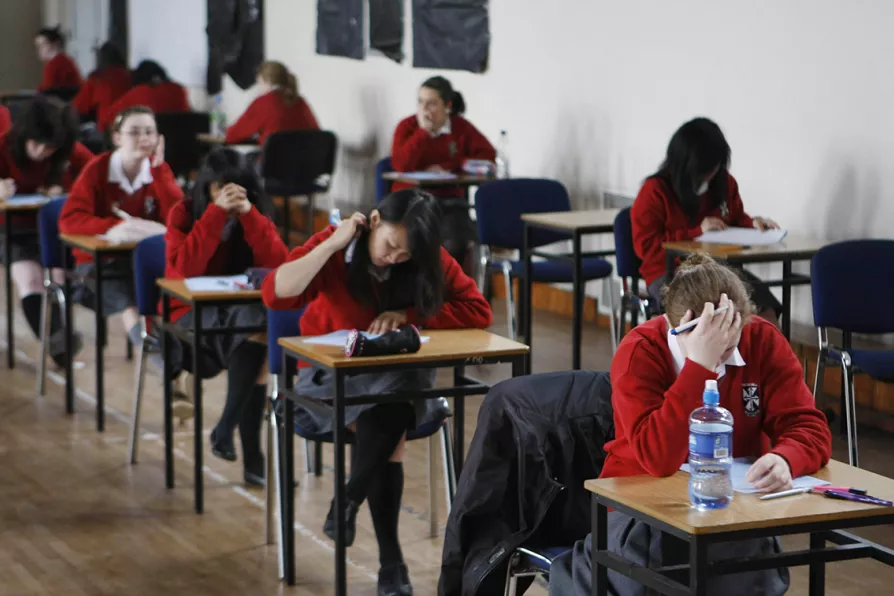TODAY’S GCSE results exposed the “entrenched inequality” in Britain’s education system, with privately educated pupils now 2.5 times more likely to score the highest grades than those at comprehensives.
Experts said the results reflected the widening gaps between the most and least well-off after the pandemic and cost-of-living crisis.
Figures published by England’s exams regulator Ofqual revealed nearly half — 48.4 per cent — of private school entries scored at least a grade 7, compared with 19.4 per cent of pupils in state schools.
National Education Union general secretary Daniel Kebede warned the GCSE examination system “does not play to all strengths” and is in urgently in need of reform.
“The sheer volume of formal written testing required for GCSEs is beyond burdensome — for teachers and students,” he said.
“In the vast majority of subject entries, it is the only way students are allowed to show what they know and can do, and this simply does not do them all justice.
“It also causes significant, avoidable stress and anxiety given the high stakes attached to this all-or-nothing method of assessment. “
He added: “The EBacc forces the arts, vocational and technical subjects increasingly further out of the curriculum. The content is not representative of all students and their communities, and is not sufficiently engaging, inclusive or modern.”
The union welcomed a government review into these issues, adding it is “vital” that members’ expertise and the student voice play a key role.
“Desperately high levels of child poverty are also a huge barrier to children and young people’s education, making concentrating and learning an almost impossible daily struggle,” continued Mr Kebede.
“Long-standing regional disparities in results have continued this year and we know that levels of child poverty are not equal across the country.”
NASUWT general secretary Dr Patrick Roach said: “It is vital that every pupil, irrespective of background, has the opportunity to progress and achieve their full potential.
“The government’s stated commitment to tackling the disadvantage gap and ensuring that a pupil’s educational outcomes do not depend on their parents’ ability to pay must now be translated into a key spending priority by the new government.”



 Latest editorial
Latest editorial













